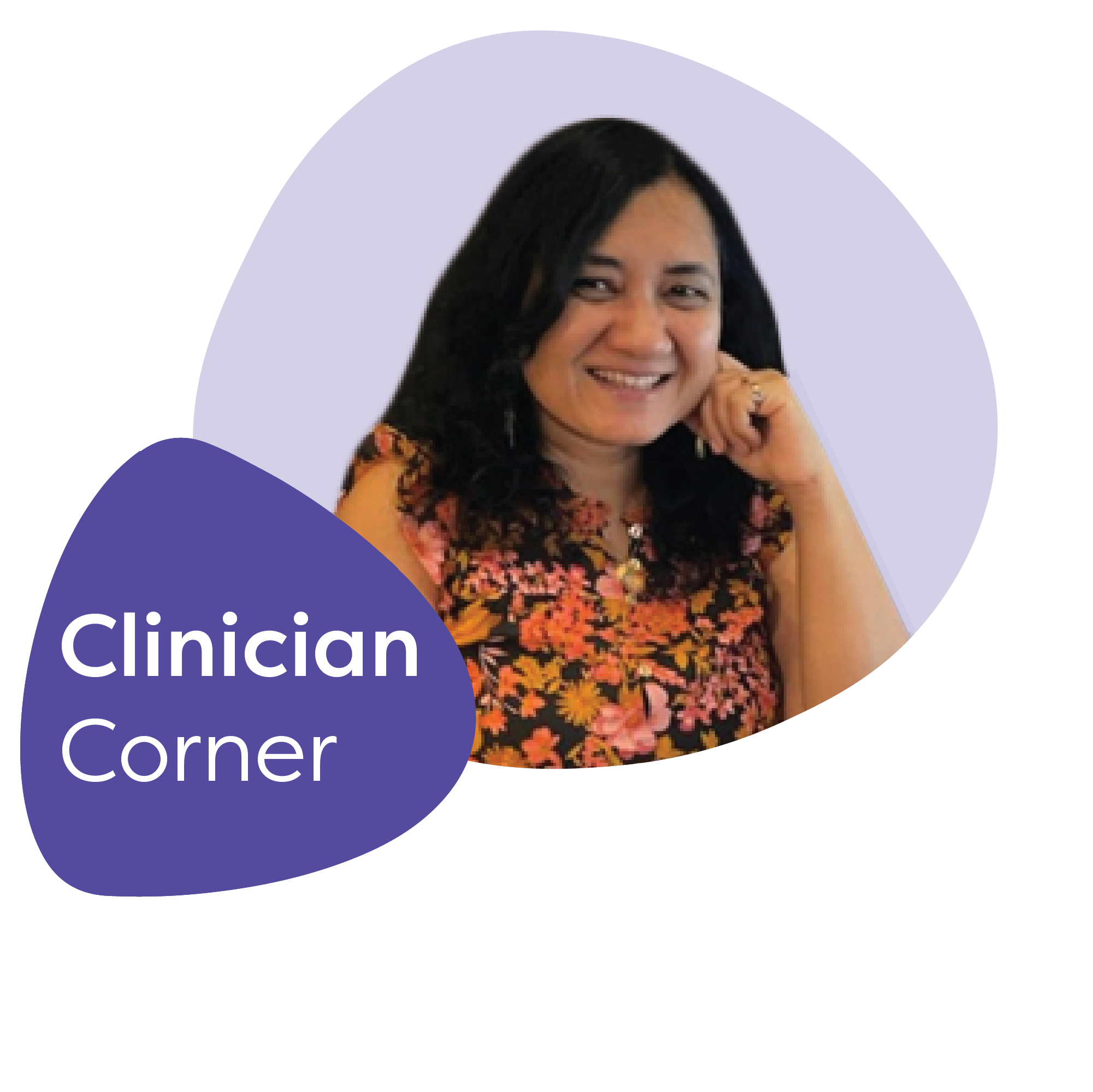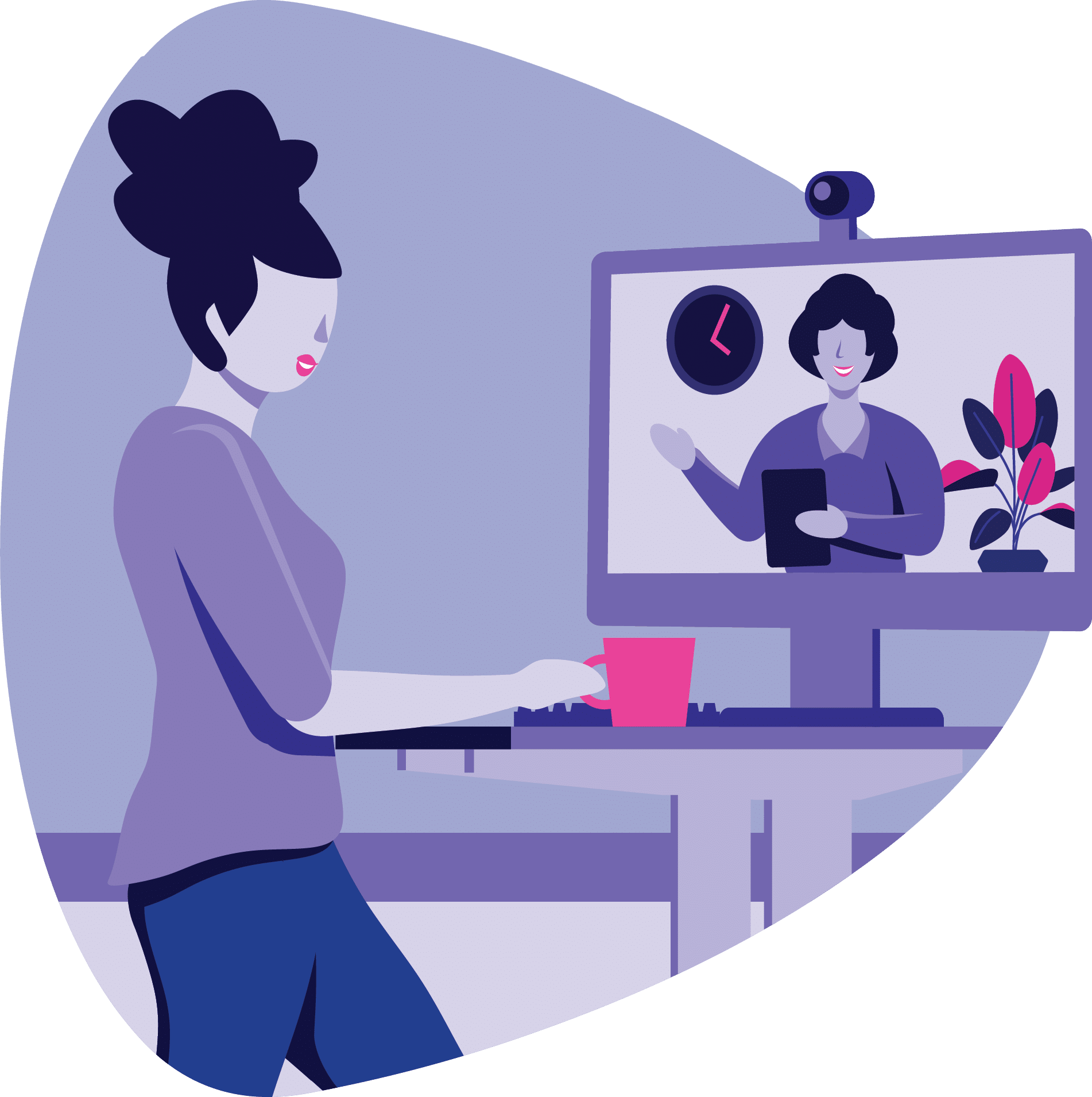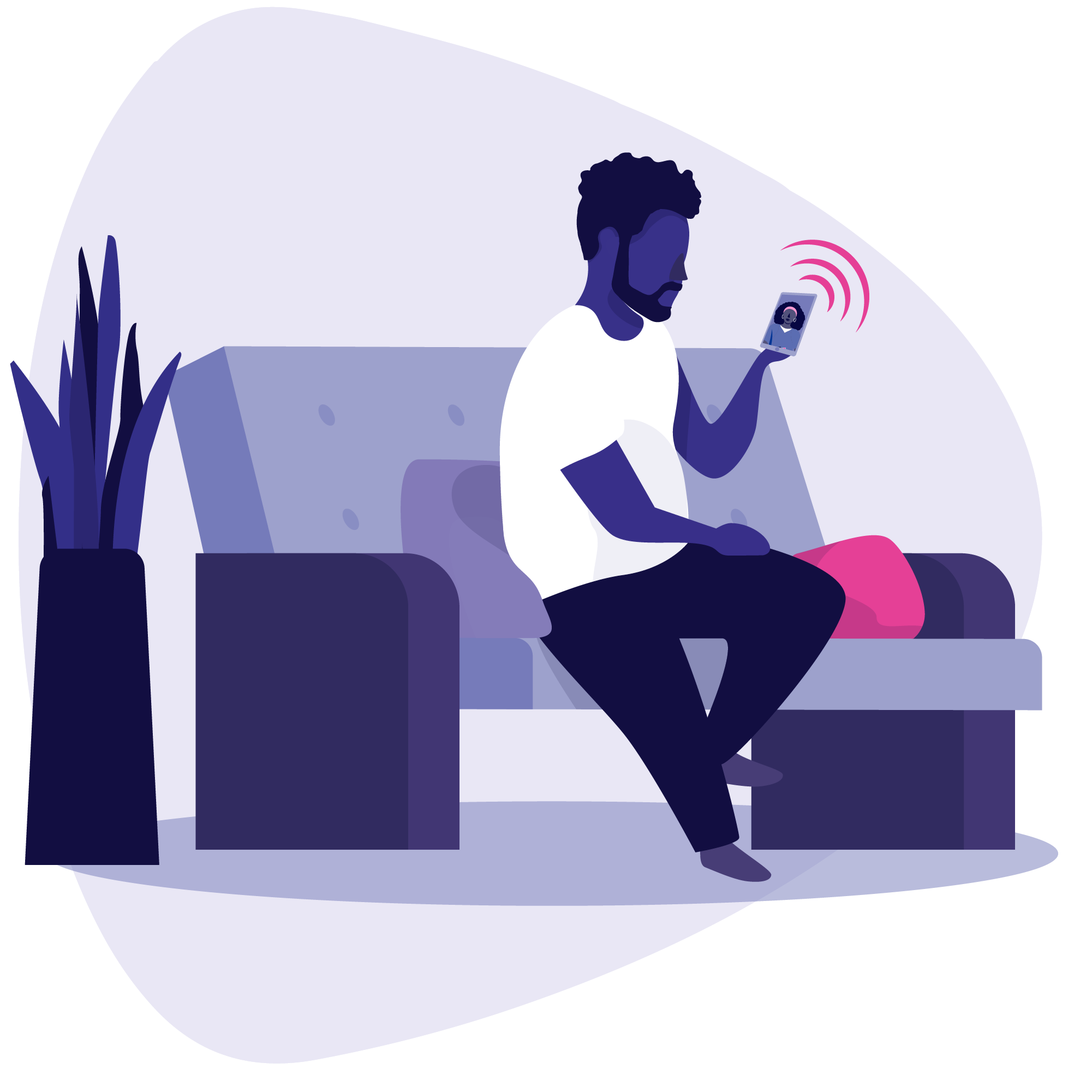Iris clinicians are at the heart of what makes our organization such a special place to work. That’s why we’re turning the spotlight on the amazing work they’re doing every day. This month, we’re sitting down to talk with Dr. Kavita Vasu.
Q. How did you find Iris and decide you wanted to be an Iris provider?
A. I found Iris basically by doing an internet search. For a while, I was fascinated with telepsychiatry and wanted to try it, but at that time, I had a medical situation and could not physically go to work. I knew telehealth would be a good option for me. This was before the pandemic even started. I didn’t even look for other companies. I reached out, and it was a seamless process. I’ve been working with Iris ever since.
Q. How does telepsychiatry compare to in-person work?
A. In-person work, you get some extra information because you can see the patient walk into the office. But with telepsych, a nurse can always give me this additional information that I cannot get. That’s really helpful. There are times when there are aggressive patients, and you can see their mood escalates. There are many times when I felt, “Thank God that I’m on the other side where I’m safe,” and I don’t have to worry about being physically attacked. There are other differences where if it’s a child, I can engage with them in play better in person.
Overall, with telepsych, the no-show rates are significantly lower because people can access them from wherever they are at home or work. Sometimes, instead of taking the whole day off for a medical visit, people can take their appointment from work and go to another quiet place. Or even college students can take calls from their university. I feel like telepsych, in that respect, gives more flexibility to a patient.
For underserved communities, they may have waited months for a specialty provider or had to travel somewhere else. Telepsychiatry bridges that gap, where they can see a specialist sooner and don’t have to travel as much. It’s nice that people in those communities can be served through telepsychiatry.
Q. How do you foster connection with patients virtually?
A. It requires a different approach for children and adults. It’s easier with adults because now people use technology so much for communication, whether in meetings or calling their families in different countries. There has been less of a challenge with adults and teenagers. Teenagers love being in the virtual world, and many of them are more comfortable with virtual care. When I saw patients in the office, teenagers took a lot of time to warm up and share information. But because this is a platform they use so often socially, it’s the norm for them, and they find they open up so much faster.
To them, it feels like they’re talking to a friend. Their ability to share is quick. That has helped foster connection. If I notice a reservation about it or they’re nervous, I get them to talk about it. I always ask, “How do you feel about using telepsychiatry?” They will tell me what reservations they have. I will acknowledge and validate that and say, “Yes, I understand that, but I’ll do my best to help make this smooth for you.” And the guard drops just from that.
I make sure I’m making good eye contact and less time just looking at the computer to fill out stuff, so they feel that I’m engaging with them. And then, once the connection has been established, it is easier to move forward.
Q. As a healthcare professional, how do you manage work-life balance?
A. It’s easier to manage work-life balance when you’re doing telepsychiatry. People often feel, “I’m doing this from home so I can make my notes later.” And I want to make sure that I don’t practice that habit because you remember so much better when you do it right away.
Iris Telehealth is amazing with providing us with admin time, which many places don’t specifically do for note taking, so why not utilize that? Preferably, I do my notes for the morning patients before I start with the afternoon appointments. That way, I can start with a fresh mind; I remember everything. Then, since I’ve done my notes during the work hours, that leaves me with time in the evening to spend with my family, friends, and doing hobbies I pursue.
I also make sure in between visits, I get up for a little bit, even if it’s getting up and walking around for two minutes. I like meditating, doing yoga, and spending time in nature. I make sure there’s time for that, so I can return to work feeling enthusiastic and refreshed every day.
Q. What is the most rewarding part of your job?
A. Listening to people and realizing that they’re feeling so much better, from knowing someone is listening to them, trying to understand them, and validating how they’re feeling. I can see that relief in them, like, “Somebody understands me, somebody gets me.” There’s so much satisfaction from just knowing that somebody’s feeling relief from that itself.
Then, of course, when I see their symptoms improving and see them being able to function better in their lives, where their symptoms or their illness is not holding them back anymore. They can fully engage in life with their work and relationships in every way. It’s wonderful to see people get back to functioning at the most optimal level, especially with children, because I know they have their whole life ahead of them. A change that I can make that can impact the rest of their lives can be really rewarding.
Q. What do you love about working with Iris?
A. I love many things about working with Iris, and I’m saying this because I’ve spoken to friends who work at other telehealth companies. When Iris says they are focused on employee satisfaction and well-being, they mean it. I have felt so supported, especially during the pandemic. It was a challenging time. Each of us is assigned a Clinical Operations Manager, so they’re regularly reaching out to connect, see how things are going, and ask how they can support me.
But in the pandemic, they took it to another level where they were reaching out frequently to make sure I wasn’t feeling burnt out and asking how they could support me so that I could function the best at work, whether it was the pandemic or going through my medical stuff — I got so much support.
There was so much understanding and flexibility. I feel like I’m part of a family, and I’ve worked at other jobs, and they’ve been good too, but nothing like Iris. I really feel like this is my second family. They make it personal. They make sure to appreciate and acknowledge the people who work with them, and they’re so easy to approach — even higher-up people in the administration. It doesn’t feel like a hierarchy. They are just ready to listen.
Dr. Tracy Mullare is an amazing human being. Dr. Thomas Milam, too. Then, of course, my Clinical Operations Managers have been excellent. Even if it means advocating for a need of mine at the facility where I’m working, making sure things are running smoothly for me.
Iris also ensures we can keep a work-life balance by building that admin time into the workday. They’re mindful of our needs, providing many benefits, whether it’s attending conferences or providing office supplies and expenses. Iris gives me so much in so many ways that make my work day smooth. It keeps me wanting to stay at Iris. It’s the best job I’ve ever had so far.
Q. Why do you think telepsychiatry is important to the future of mental healthcare?
A. It gives flexibility to many people in different ways. For example, someone who’s a university student or someone working doesn’t have to take a significant amount of time off to come in for a visit. It’s helpful for them and for people with physical disabilities who have a hard time getting into the office for a visit. It helps people with transportation issues, who don’t have someone to give them a ride, or if there’s a weather issue.
Telehealth breaks all those things that could have been barriers and limitations for people to show up for a visit. It’s generally helpful to ensure that more people are seen as regularly as needed. Sometimes they forget about their appointment, and we remind them, and they can take their visit from the computer. For in-person visits, if they’re somewhere else and get a reminder, they may not be able to get to the office on time. Telehealth makes sure those barriers are no longer barriers.
As I work at facilities in other states, especially in these rural underserved areas, many tell me they’ve been waiting a year to see a psychiatrist—especially child psychiatrists. Sometimes the nearest child psychiatrist could be many towns away, and now it’s a click away. That’s why it can be really helpful to make sure that none of these are barriers for patients to get the care they need.
Q. What advice would you give to someone new to telepsychiatry?
A. I would tell them to make sure that when they’re at work, to imagine that they’re at an office, not at home – to keep that professionalism intact and ensure they’re using their work hours well and not leaving work for later.
Make sure you have good communication with the team working on the other side supporting you. For example, get to know exactly which one is going to help you, in which way, and how you can connect the patient to other services with the staff who’s already there. Sometimes it’s told to you, and sometimes it’s not. So as much information as we can get and as much of a relationship you can have, whether it’s a nurse, a social worker, or a medical assistant, it can help you communicate to them what you would need for your visit.
Each of us operates and functions differently. There’s certain information they can get for us that can be helpful for the visit. So, use that and have positive connections because sometimes it can be isolating when you’re at home and not meeting people at work as you would.
And then, the show rates improve with telepsychiatry, which is good but can mean we don’t have the breaks that we would have in the office sometimes when there are no-shows. That means we need to manage our time more effectively. Be sure to be organized, manage your time well, manage your connections with the on-site team, and communicate your expectations and what you would like.
At Iris, we believe our providers should be respected, valued, and applauded for the work they do, and we couldn’t be more proud to say, “thank you” to our very own Dr. Kavita Vasu. If you’d like to learn more about working for Iris Telehealth, contact us today.



